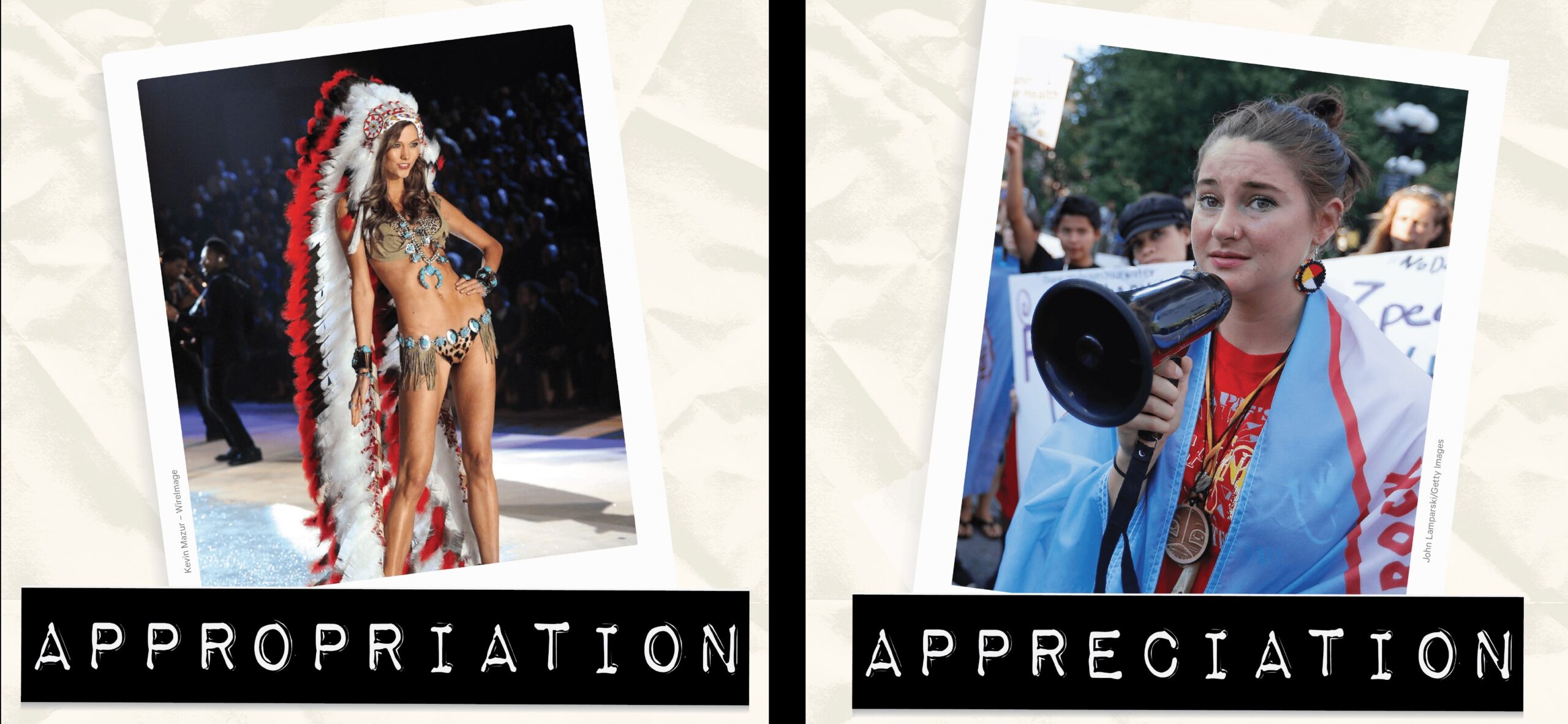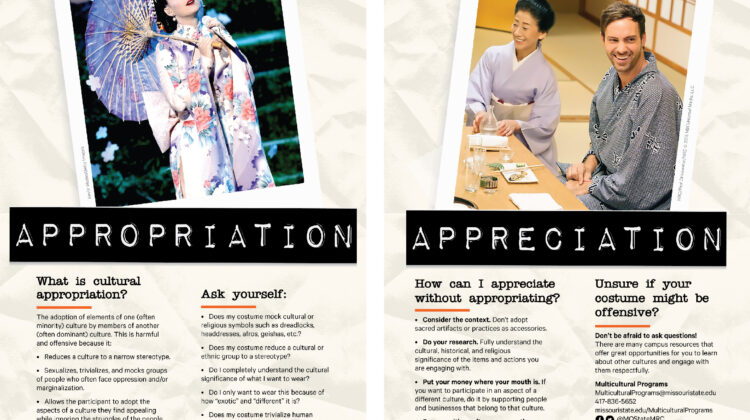
Appropriation vs. Appreciation
As we approach Halloween, please consider your costume; there is a difference between cultural appropriation vs. cultural appreciation. Here’s how you can determine the difference.

What is Cultural Appropriation?
The adoption of elements of one (often minority) culture by members of another (often dominant) culture. This is harmful and offensive because it:
- Reduces a culture to a narrow stereotype.
- Sexualizes, trivializes, and mocks groups of people who often face oppression and/or marginalization.
- Allows the participant to adopt the aspects of a culture they find appealing while ignoring the struggles of the people to whom that culture belongs.
- Removes the context that makes those cultural elements meaningful.
Ask yourself:
- Does my costume mock cultural or religious symbols such as dreadlocks, headdresses, Afros, geisha, etc.?
- Does my costume reduce a cultural or ethnic group to a stereotype?
- Do I completely understand the cultural significance of what I want to wear?
- Do I only want to wear this because of how “exotic” and “different” it is?
- Does my costume trivialize human suffering, oppression, or marginalization?
- Would my actions allow me to profit from cultural elements that are not my own?
How can I appreciate without appropriating?
- Consider the context. Don’t adopt sacred artifacts or practices as accessories.
- Do your research. Fully understand the cultural, historical and religious significance of the items and actions you are engaging with.
- Put your money where your mouth is. If you want to participate in an aspect of a different culture, do it by supporting people and businesses that belong to that culture.
- Engage with a culture on a more than aesthetic level. Don’t “cherry pick” only the elements that you find fashionable.
Unsure if your costume might be offensive?
Don’t be afraid to ask questions! There are many campus resources that offer great opportunities for you to learn about other cultures and engage with them respectfully. One great source is the Multicultural Programs Office – MulticulturalPrograms@MissouriState.edu, missouristate.edu/MulticulturalPrograms, @MOStateMP.


